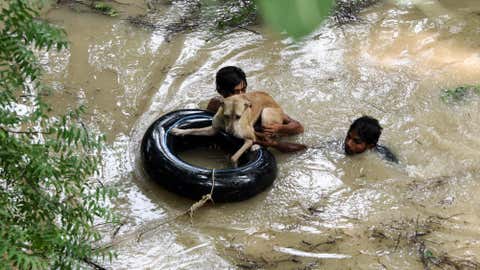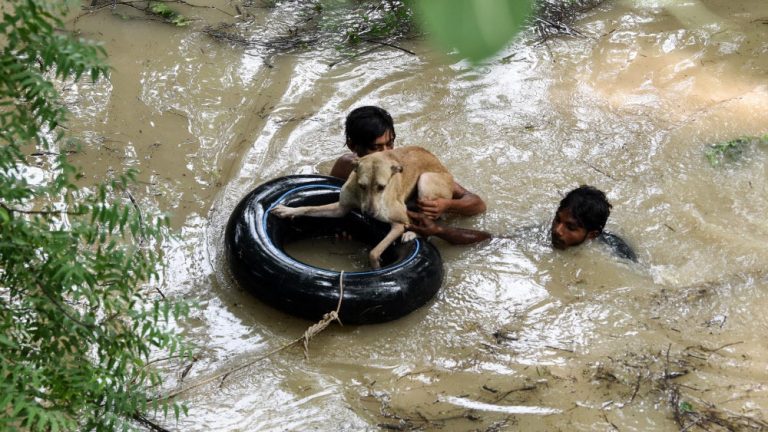

Representative image of Delhi floods
(Rajesh Mehta/TOI, BCCL-Delhi)
India has seen an alarming surge in extreme weather events in 2023, according to a new report by the Center for Science and Environment (CSE). The report, titled 'State of the Environment of India 2024', reveals that the country witnessed such extreme events on 318 days out of 365 days, affecting all states and union territories (Yes, every one of them).
Of all the destructive weather events, heavy rains, floods and landslides were the most common, occurring on 208 days. Lightning and storms were also widespread and recorded over 202 days. In addition, the year saw 49 heat waves, 29 cold waves, and 9 cloud storms. Notably, India witnessed a period of 123 consecutive days of extreme weather events between June and September.
The consequences of these events were relatively devastating, claiming 3,287 lives, damaging 2.21 million hectares of crops, and causing the death of 124,813 animals.
The report also highlights that eight states experienced more than 100 days of severe weather in 2023. Furthermore, given that 2023 was the warmest year in the country's recorded history, the Northwest bore the brunt. Among them, Himachal Pradesh recorded the most extreme weather events (149 days), while Haryana suffered the greatest damage to its crop area. Punjab witnessed the highest loss of livestock.
Economist Nitin Desai, journalist T N Ninan and CSE Director General Sunita Narain revealed the report during the annual Anil Agarwal Dialogue. The report confirms that 2023 saw a temperature rise of 1.48 degrees Celsius compared to pre-industrial levels, and saw the largest number of days exceeding the global average temperature of 1.5 degrees Celsius.
Sunita Narain also stressed the need to address the “multiple crises” of 2023-2024, which include environmental challenges, geopolitical conflicts and competition over resources. She spoke about the importance of strengthening regulatory institutions and moving beyond mere technological solutions to ensure environmental sustainability.
This report is a stark reminder of the urgent need to combat climate change and its consequences. India's experience underscores the need for immediate and comprehensive action to mitigate risks associated with extreme weather events and build future resilience.
(With inputs from The Times of India)
**
For weather, science, space and COVID-19 updates on the go, download Weather channel app (On Android and iOS store). It's free!

